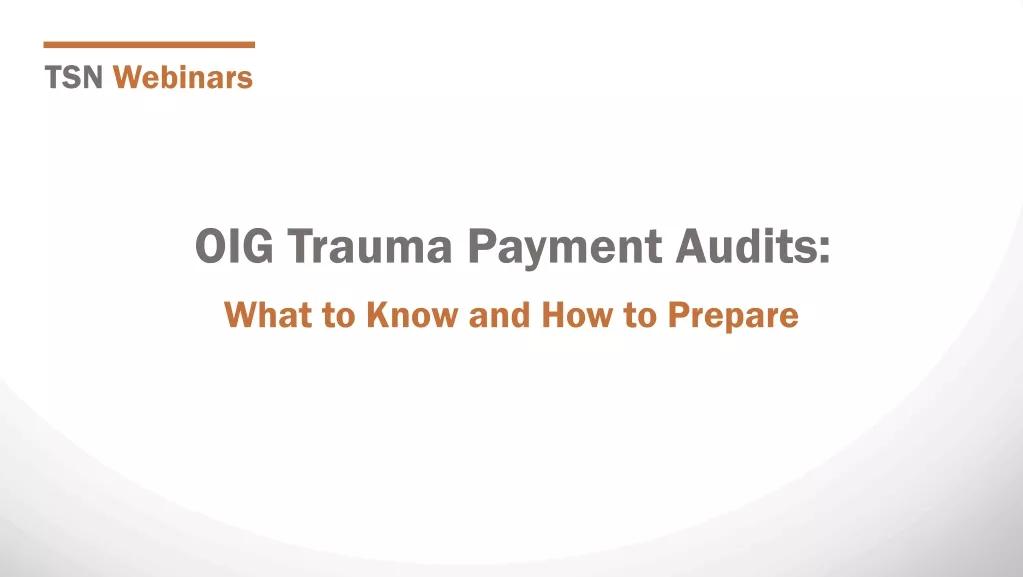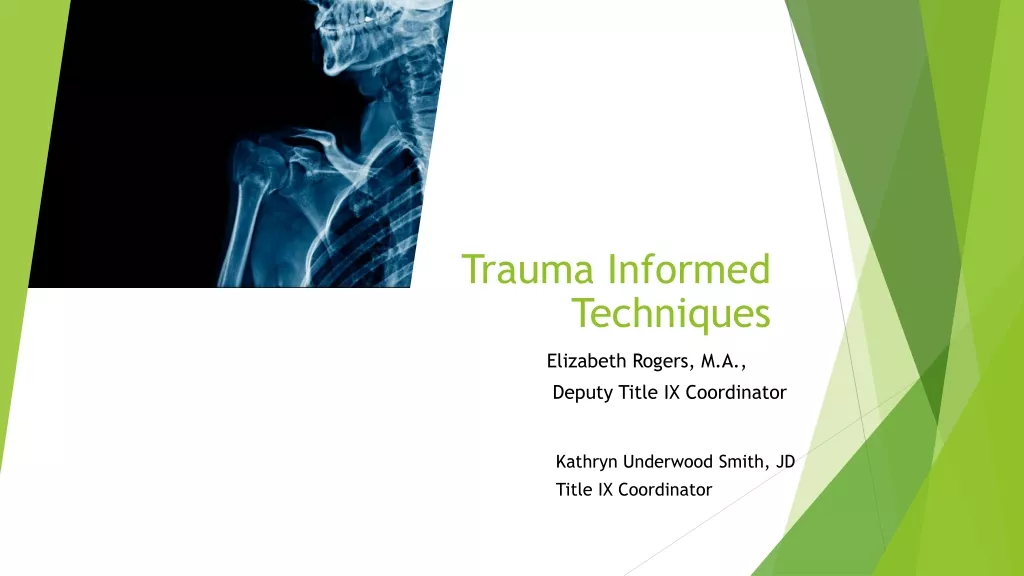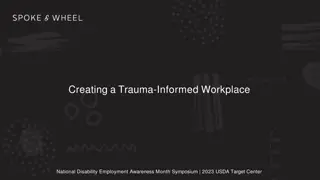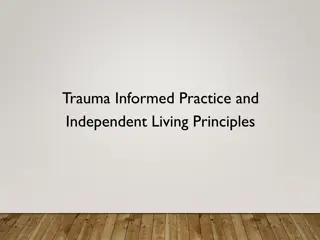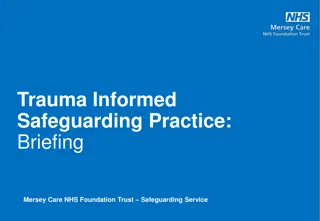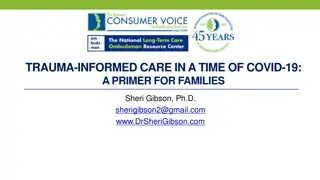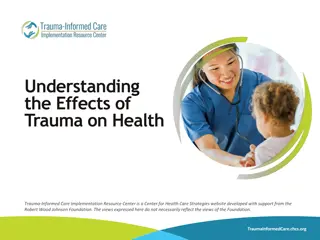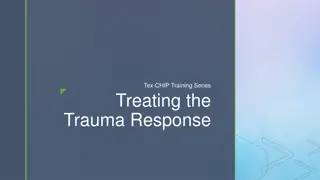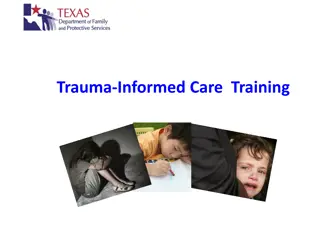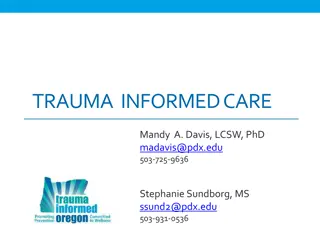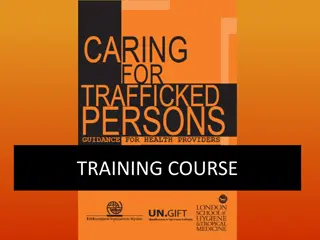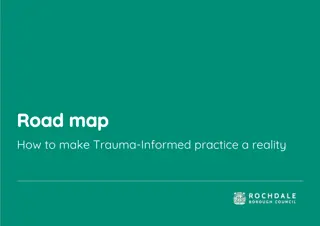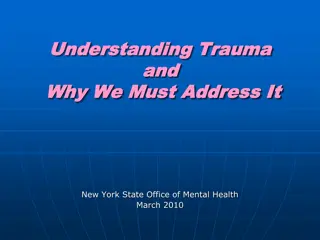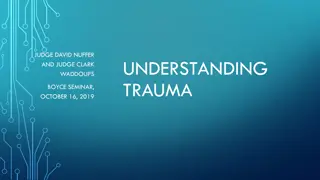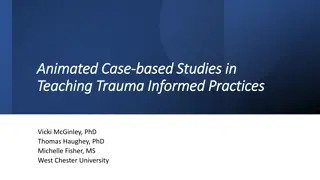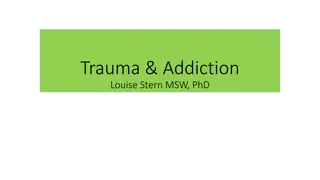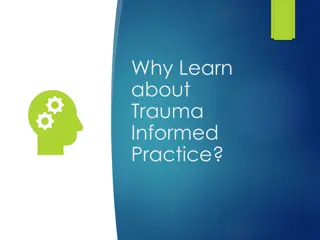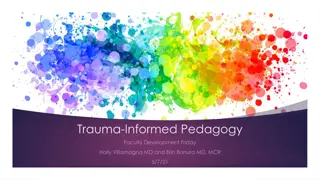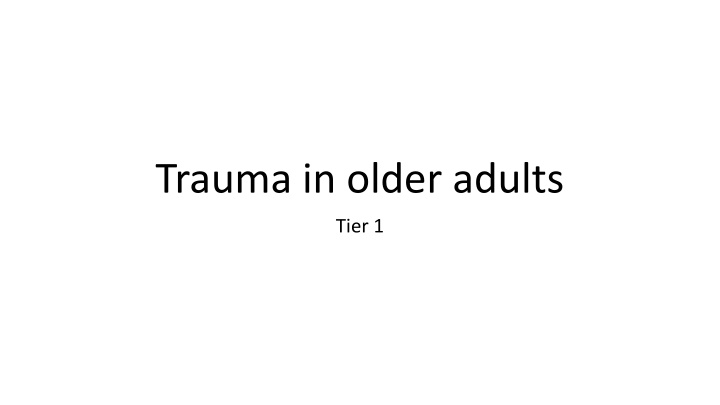
Trauma in Older Adults
Explore the impact of trauma on older adults, with insights on triggers, trauma-informed care, and guiding principles to prevent re-traumatization. Learn how to provide a safe and supportive environment, establish trust, and promote healing.
Download Presentation

Please find below an Image/Link to download the presentation.
The content on the website is provided AS IS for your information and personal use only. It may not be sold, licensed, or shared on other websites without obtaining consent from the author. If you encounter any issues during the download, it is possible that the publisher has removed the file from their server.
You are allowed to download the files provided on this website for personal or commercial use, subject to the condition that they are used lawfully. All files are the property of their respective owners.
The content on the website is provided AS IS for your information and personal use only. It may not be sold, licensed, or shared on other websites without obtaining consent from the author.
E N D
Presentation Transcript
Trauma in older adults Tier 1
What is trauma? Individual trauma results from an event, series of events, or set of circumstances that is experienced by an individual as physically or emotionally harmful or life threatening and that has lasting adverse effects on the individual s functioning and mental, physical, social, emotional, or spiritual well- being
Trauma in older adults Trauma is under-recognised Trauma is under-treated Up to 90% of older adults have experienced at least one traumatic event in their lifetime, perhaps evacuation in the war, the unexpected death of someone close, serious illness or serious injury to self
Trigger events Possible triggers to traumatic memories could be A particular date anniversary of a traumatic bereavement A rigid regime with in a care setting reminding them of being in prison camp A particular place/noise reminding them of past physical abuse
Trauma Informed care in older adults Due to past trauma, situations that occur in everyday life may trigger memories of the trauma and affect the person s responses If you are unable to ascertain that there is a history of trauma the best approach is to assume there is Trauma-informed care is about acknowledging that past and recent events may have been traumatic for older adults and to assess and then plan care with the aim to reduce or prevent re-traumatization. Ensure that if this is new information to your care team that it is reported.
Guiding principles to prevent re- traumatization Create a physically and emotionally safe environment Establish trust Support autonomy and choice Create collaborative relationships and participation opportunities Use a strengths and empowerment-focused perspective to promote resilience and reduce re-traumatization and promote healing
Resources MPC_08_01 - Post Traumatic Stress Disorder And Other Traumas | Effects of Trauma (mindedforfamilies.org.uk) This is an easy to access website for older adults and their families which has good advice about what trauma is ,the effect of trauma , post traumatic stress disorder and practical suggestions of things that could help for family and friends

